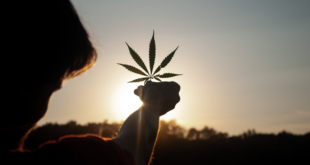
The 2016 presidential candidates are discussing marijuana legalization in ways unimaginable less than a decade ago.
Candidates from both parties are accepting substantial donations from business owners and activists in the marijuana industry that hope to expanded marijuana legalization in the U.S. The marijuana industry also landed their first major candidate: Rand Paul.
In June, Paul became the first major-party presidential candidate to hold a fundraiser with the legalized marijuana industry, courting about 40 donors at the Denver event.
Politicians are slowly shifting towards a pro-marijuana stance. Democrats are often less critical of states legalizing marijuana, but they’re treading carefully. Hillary Clinton mentioned last year that more research needed to be done on marijuana’s medical value, but “there should be availability under appropriate circumstances.” She didn’t elaborate what those circumstances should be.
As for Sen. Bernie Sanders, Clinton’s main Democratic rival, he is weary of legalization, despite his liberal social views and counterculture roots.
The Marijuana Policy Project, which is the nation’s largest marijuana lobbying group, plans to donate tens of thousands of dollars to 2016 presidential candidates.
Attendees said Paul talked about changing federal drug-sentencing laws but stopped short of calling for nationwide legalization. “We wouldn’t have heard a presidential candidate talking that way four years ago,” said Rob Kampia, Executive Director of the Marijuana Policy Project, who was among those at the Denver fundraiser.
53% of Americans said in a Pew Research Center survey in March that marijuana should be legal. In 2006, less than a third of Americans supported marijuana legalization in the General Social Survey’s measure of public opinion.
It’s uncertain how much money the marijuana industry will spend on the 2016 presidential race. Many marijuana business owners and activists are expected to spend their money on state campaigns in the six to ten states likely to have some sort of marijuana legalization policy on ballots next year.
“There are a lot of loose bricks in the walls of resistance to changing drug laws in America,” said William Martin of Rice University. “It’s no longer a silly question, legalizing marijuana.”
 AZ Marijuana Arizona Marijuana Info
AZ Marijuana Arizona Marijuana Info






